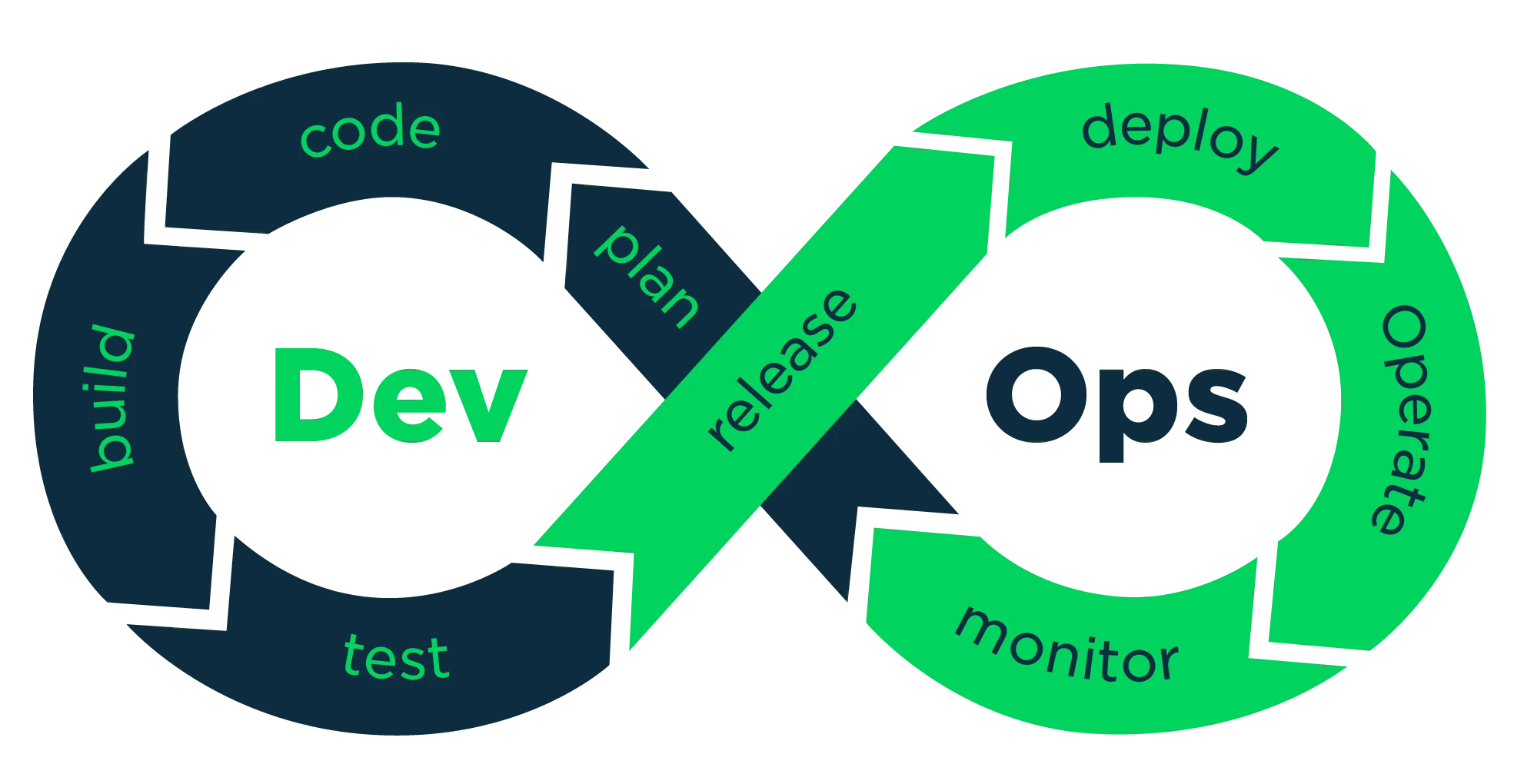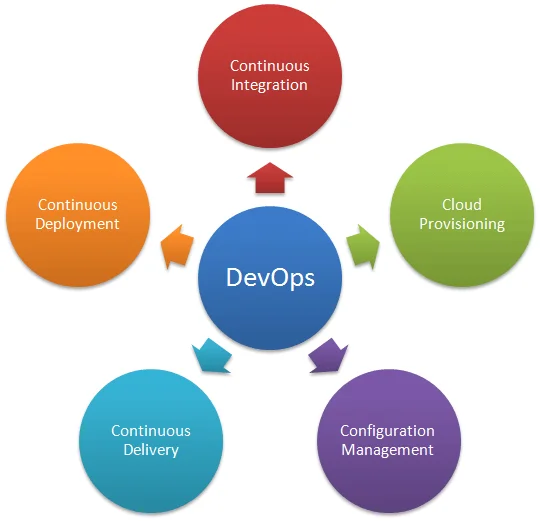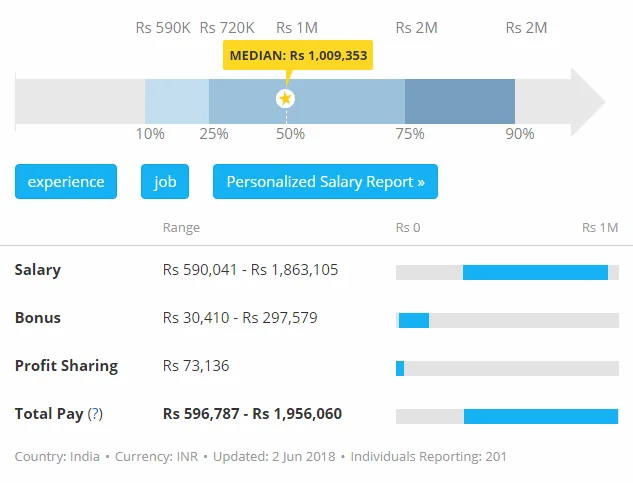So, the first question first.
Do you know what is DevOps and why is it important?
Let’s go back to the memory lane a bit.
Andrew Shafer and Patrick Debois first introduced the term publicly in 2008 at the Agile Toronto conference. DevOps is (a stapled compound term of development and operations) is a software engineering culture or methodology that aims at integrating software development and software operations.
It encourages the communication between software developers and IT operations to increase the efficiency at which products are delivered the main feature of DevOps guide the automation and monitoring at all steps of software development. It mainly targets at shorter development cycles, increased implementation frequency, more errorless release perfectly aligned with business objectives.
But, you must have heard of this line pretty often-
“DevOps is not just a framework, it’s a culture.”
In fact, in our blog “DevOps: A Role? Or A Culture?” we discussed it in detail too.
Still have doubts regarding what it means?
Let’s go through the DevOps concepts once again then!

We know that DevOps is made from two terms Development and Operation, In traditional method the organizations were facing so many problems because there was no communication between development team and operation team, because of that the total strength or we can say the efficiency of an organization is fallen down, now we can understand that how the DevOps concept developed. Get It? The incapability of organization made people think that they have to move for a different approach and "then" the concept of DevOps was created.
If you go through our blog “A Career Ops Guy’s Story Of Embracing DevOps” you will get a real-life sneak peek of introducing DevOps in an organization and the reasons behind that.
We can frame the main definition of DevOps like this:
DevOps is the method or process of development and operation experts, synchronizing their work in the entire service delivery lifecycle. |

The DevOps methodology improves understanding of the steps in the total service lifecycle by regulating the service management to assist in the operational activities which ultimately prevents or reduces the production errors.
The Company who implemented the DevOps process achieves more performance with plain and simple with a unique group of members who’s all work is synchronized. Simply the organization that implements DevOps in their process can deliver the service faster with better and innovative functionality. It also overcomes the potential problems in service delivery, collaborating the two departments assure that the services are delivered faster also dwindles the uncertain events in the product development stage through automated testing.
Organizations also have to understand that to make DevOps approach more effectively, you need deliberate control over business management and be also ready for cultural change to supplicate the right skills.
The Technical Benefits:
Problems are less and can be fixed easily
Software delivery becomes a stable process
Resolving of problems becomes faster
Business Benefits:
Features are delivered more quickly
Operating procedure becomes smooth and controllable
Gives more time to add value
There are Cultural Benefits:
Higher Employee Commitment
Happier, more productive teams
More opportunity for professional development
Apart from this, DevOps practices have other benefits as well. A few months back we hosted this webinar to discuss the DevOps practices beyond development and operations:
1. Reduce service delivery time:
By collaborating the most important department in the company will ultimately reduce the service delivery time because there are fewer errors and automated testing at every step of the product development cycle.
2. Better defect detection:
DevOps methodology is basically based on the Agile principles so the massive product development steps are broken down into small, strategic, and particular steps and because of that businesses can gain more control over the process by monitoring every step.
3. Improved communication and collaboration:
Synchronizing two different departments in the organization is not complex like it sounds because it creates a communication path between development and operation engineer’s helps each other process with their skills and capabilities.
4. Fast recover from failure:
In the conventional IT work process, first, the development proves carried out and then the functionality was improved by the operation engineers but in DevOps culture, both departments work closely with each other so the changes or failures of product are identified early and resolved.
5. More time to innovate:
Reduced time over the total service delivery process and less fallback because of improved product development cycle, engineers can work more efficiently and spend their saved time on innovating new functions or new processes.
6. More Stable with Greater quality software:
The secret of success in DevOps methodology is because, in this method, all components of enterprise follow a single objective. DevOps works by giving different roles and responsibilities to the same staff or employees but one common objective which orbits around quality, reliability, security, user experience, and time to market.
In our previous blog“Few Perks Of Choosing A DevOps Career”, we discussed it all.
Still, let’s sum it up for you!
A concept of DevOps is still not that recognized but nowadays most of the multinational companies operating at cloud technology implementing DevOps process so instead of pursuing in the highly competitive job market it’s a better option to stand out from the rest and emerge with unique skills and knowledge.

The DevOps specialists are getting the highest salary in the IT profession because of their flawless decision making capability and unique thinking process. You can see that in the Payscale survey the DevOps engineers are earning up to $1,39,000 and the market worth of DevOps Engineers is very high and DevOps Managers are earning up to $159,288.

In India, DevOps is still a new concept but you can check that more than 20000 vacancies are available in India every year and from that, we can see that after some years these numbers going to be huge and the sky is the limit for their opportunities.
All you need to do ismake a roadmap of your DevOps career. And a DevOps training is the 1st step to it!
Understand the need for DevOps and the benefit it offers
Understand how it helps in continuous delivery and offers solutions to problems
Learn about the common Infrastructure Servers, Scalability, and Availability
Implement Automated Installations and Deployments
Understand Performance and basic Security for Infrastructure
Understand & Implement Virtualization Concepts
Understand the need and concepts of Monitoring and Logging
Understand the Continuous Integration and Deployment
Learn various DevOps tools Chef, Puppets, Jenkins, Nagios, Docker, GIT, etc
Understand how DevOps provides business benefit
DevOps Foundation
TheDevOps Foundation certificationprovides an introduction to DevOps, this course reduces stresses in communication, collaboration, integration, and automation in order to improve the flow of work between software developers and IT operations professionals.
DevOps Leader
DevOps Leaderis the ultimate course for DevOps working Professionals to get involved in a DevOps cultural transformation within their organization.
DevOps Master
DevOps MasterCourse is from Exin will enable you to work in a leadership role to handle DevOps team which is the most prominent role in the organization and in this position you oversee and guide all activities of the junior DevOps teams.
DevOps Test Engineering (DTE)
ADevOps test engineeris an individual accountable for testing software in a DevOps environment. This course describes the culture and team aspects for test engineering, test strategies, test infrastructures, test tools, test automation, best practices, test management and analysis.
Devops Continuous Delivery Architect (CDA)
Acontinuous delivery architect(CDA) expert would be knowledgeable with most DevOps Tools from useful, non-useful and specialized viewpoints in this manner, can't just successfully design DevOps pipeline and toolchains architectures yet, in addition, actualize, oversee them convey continuous combination, continuous delivery, and continuous arrangement.
DevOps Developer
DevOps Developercertification course aims towards sharing a vast knowledge of DevOps Framework and its implementation in real life.
Site Reliability Engineer
TheSRE (Site Reliability Engineering) Foundation courseis an introduction to the principles & practices that allows an organization to reliably and economically scale critical services. Site Reliability Engineering is an approach to operations that takes the help of software engineering and automation solutions to ensure that continuously delivered applications are running efficiently and reliably.
DevSecOps Engineer
DevSecOps Engineering coursecovers a wide range of topics that include how DevSecOps provides the business value of DevOps and the ability it has to enable the business and support an organizational transformation with the ultimate goal of increasing productivity, reducing risk, and optimizing cost in the organization.
DevOps Engineer
DevOps Engineercourse delivers quality knowledge about efficient development operations that can balance service reliability and delivery speed. A DevOps Engineer is the front liner of a DevOps Team who produces an output of fewer software failures and shortened lead time between fixes.
To take care of this developing demand head-on, we have conceived a certification course for driven experts to use the skills of DevOps – TheDevOps Foundation CertificationTraining.
The course will empower the possibility to clear the DevOps Foundation confirmation exam on the main endeavor. What's more, Participants will build up the capacity to coordinate correspondence, cooperation, incorporation, and mechanization with the goal that they can enhance the stream of work between the product engineers and the IT activities experts for quicker improvement and arrangement.
Training will be provided by Industry experts having more than 20 years of experience, with preparation totally focused on the certification exams. Our standard cost for this DevOps certification and training is INR 35,000 but we keep on giving exclusive discounts, you can check your price by calling us. You can also drop an inquiry and one of our executives will get back to you asap.